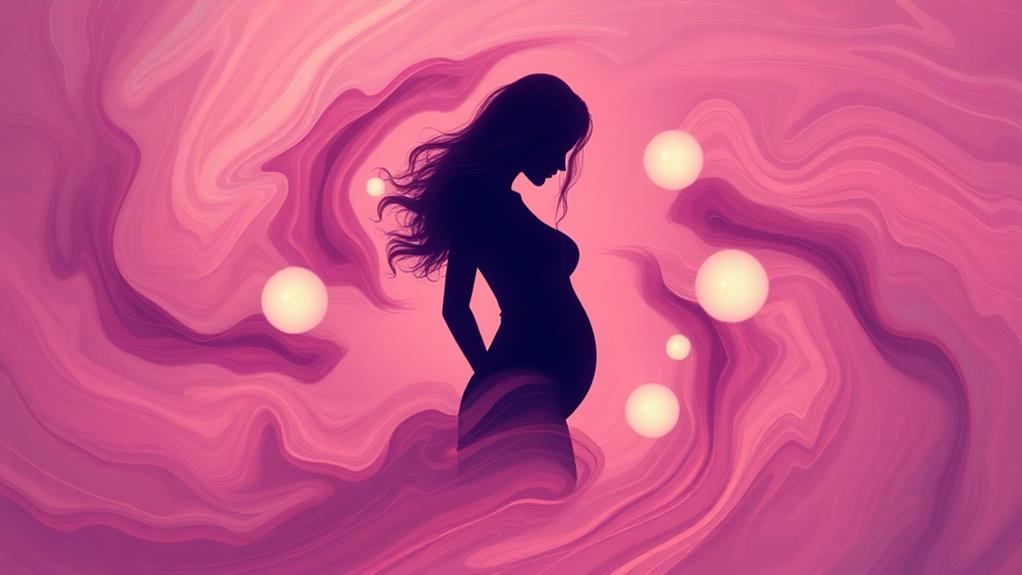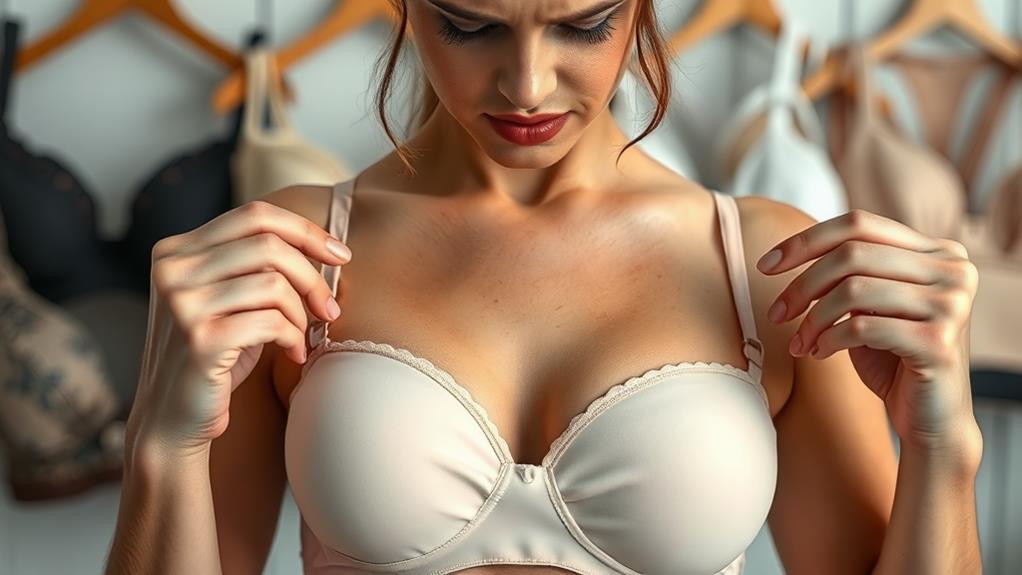If you've ever experienced breast pain, you know it can be both confusing and uncomfortable. You might think it's just a normal part of your cycle, but there are several factors at play. Hormonal fluctuations are a common culprit, especially for women during their reproductive years. However, injuries from daily activities or even an ill-fitting bra can also contribute to your discomfort. What's more, chest wall pain and breastfeeding issues are often misidentified as breast pain. Understanding these reasons can help you find relief, but there's more to explore about effective solutions.
Hormonal Fluctuations

Hormonal fluctuations play a significant role in breast pain, especially for many women. You might notice breast tenderness that pops up 3 to 5 days before your menstrual cycle starts, thanks to the ups and downs of estrogen and progesterone.
This type of breast pain, called cyclic breast pain, is pretty common during your reproductive years, affecting about 50% of women. It often fades away once menstruation kicks in.
But wait, there's more! If you experience premenstrual syndrome (PMS), you might find that your breast pain gets a bit worse.
And guess what? If you're pregnant or heading into menopause, those hormone levels can keep things interesting, leading to prolonged breast tenderness.
Breast Injury
Whether you're playing sports or just going about your daily activities, a breast injury can happen unexpectedly and cause immediate sharp pain. This pain might come with tenderness and can last from a few days to several weeks, making things a little uncomfortable.
After a breast injury, watch out for symptoms like severe swelling, lumps, redness, warmth, or persistent bruising. These signs could mean you need to see a doctor.
It's important to figure out if your breast pain is from an injury or something else, like chest wall pain or other breast conditions. A medical evaluation is a good idea if your pain sticks around or gets worse. You don't want to miss a serious issue like a fracture or damage to your tissue!
For minor injuries, rest and over-the-counter pain relievers can help you feel better. But if those persistent symptoms don't let up, don't hesitate to reach out to a healthcare provider. They can help with the right diagnosis, so you can get back to your routine without that pesky sharp pain hanging around!
Unsupportive Bra

An unsupportive bra can lead to discomfort that makes daily activities feel like a chore. If you're wearing a bra that doesn't give you the proper fit, you might notice achy breasts, especially during physical activities.
This is especially true if you have a larger breast size. Without the right support, your ligaments can get overstretched, leaving you with breast pain that just won't quit.
Regular bra fittings are super important to make sure you're wearing the right size. Believe it or not, many women wear the wrong size, which can really increase breast discomfort.
Switching to a supportive bra can make a huge difference. In fact, studies show that 60-70% of women report less discomfort when they wear a good sports bra during exercise.
Chest Wall Pain
If you're experiencing breast pain, it's crucial to contemplate other potential causes, including chest wall pain.
Sometimes, what feels like breast pain might actually be coming from your chest wall. This pain can be caused by factors like pulled muscles or rib inflammation, which can make you feel quite uncomfortable. You might notice that the pain feels more localized, especially if you press on the area or take deep breaths.
One common issue is costochondritis, which is when the cartilage connecting your ribs to your sternum gets inflamed. This can lead to sharp, localized pain that can easily be mistaken for breast pain.
If you've had any trauma to your chest or suspect a rib fracture, it's crucial to get a medical assessment. Ignoring these symptoms could mean missing out on an accurate diagnosis.
Breastfeeding Issues

During the early stages of breastfeeding, many new mothers experience various issues that can lead to discomfort. You might feel nipple pain, especially if your baby isn't latching properly.
Improper latching often feels like a sharp pinch, and it can lead to soreness, cracking, or even bleeding. Ouch! That's definitely not the kind of bonding you want.
To ease this, proper care and technique are key. If things get tough, consider reaching out to a lactation consultant. They can help you with feeding practices and provide tips for pain relief.
Sometimes, you might notice a tingling sensation during letdown, which is normal. But if you experience localized pain, swelling, or redness, it could be mastitis, an infection that needs a doctor's attention.
